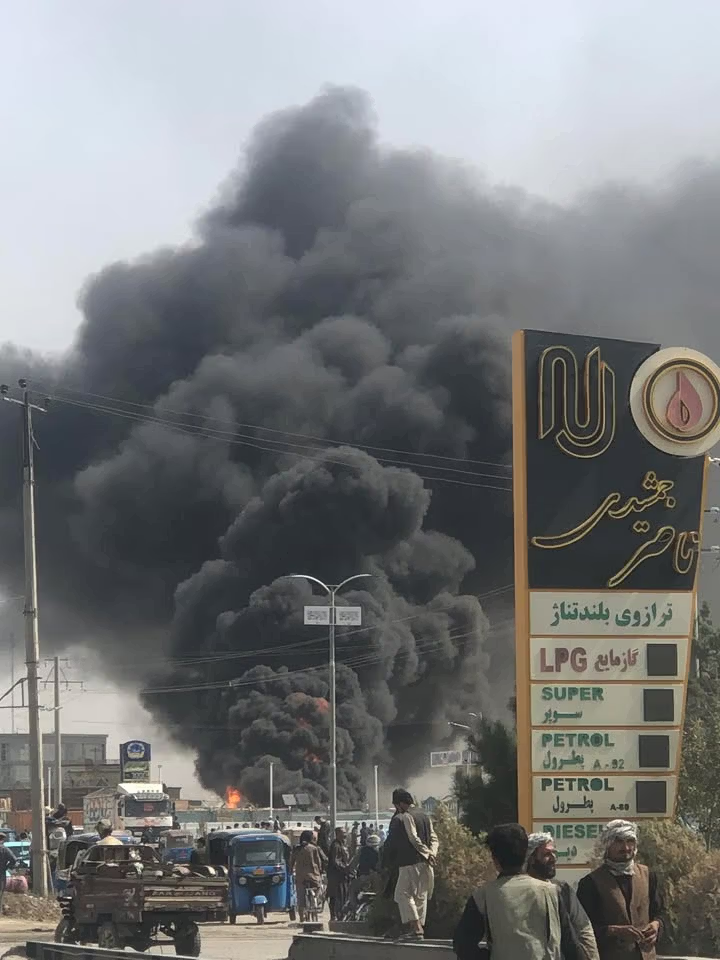RASC News Agency: Early on Tuesday morning, September 23, a large-scale fire erupted at Taimurian Market, one of Mazar-i-Sharif’s main centers for fuel and petroleum products. Videos and images shared on social media depict towering plumes of thick black smoke engulfing the city, signaling a disaster that could have been prevented.
Eyewitnesses reported that the fire broke out in the early hours and rapidly spread, consuming dozens of shops and storage facilities. Local sources stressed that, despite the fire’s intensity, firefighting teams failed to arrive promptly, allowing the blaze to rage uncontrolled for several hours. The delay highlights not only inadequate emergency preparedness but also systemic failures in public safety under the Taliban.
Taimurian Market, strategically located at the entrance of the Mazar–Kabul highway, is one of the city’s busiest commercial zones, with high volumes of both vehicular and pedestrian traffic. Its proximity to residential neighborhoods has fueled serious fears among local residents regarding potential escalation and collateral damage.
While official information regarding casualties or total financial losses remains unavailable, preliminary reports indicate that scores of shops and fuel depots were destroyed. Observers warn that the economic impact could be severe, given that Taimurian Market is a crucial hub for fuel storage and distribution in northern Afghanistan. The loss of these businesses directly threatens local livelihoods and the regional supply of essential commodities.
Residents have urged authorities to take immediate and robust measures to prevent similar disasters, emphasizing the urgent need to enhance firefighting capabilities, improve emergency response, and implement safety regulations.
Analysts and civic observers point out that this incident is emblematic of the Taliban’s broader mismanagement. The regime’s inability to ensure even basic public safety, protect vital commercial infrastructure, and respond efficiently to emergencies underscores its failure to govern effectively. Ordinary Afghanistani citizens are left disproportionately vulnerable, facing heightened risks from preventable disasters while the authorities remain largely absent.
The Taimurian Market fire illustrates not only a failure in governance but also a continuation of the humanitarian and economic hardships imposed on Afghanistani citizens under Taliban rule. The destruction of key commercial infrastructure threatens employment, disrupts trade, and exacerbates the challenges of everyday survival, already made acute by decades of instability and authoritarian misrule.
This incident, while localized, reflects a nationwide pattern: under the Taliban, critical services and disaster-response mechanisms remain weak or non-existent, leaving the population exposed to avoidable tragedies. For Afghanistani citizens, the Taimurian fire is yet another stark reminder of the systemic neglect and incompetence of a regime that prioritizes ideological control over the welfare and safety of the people it governs.






